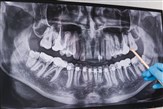-

-
Nov 10
Wisdom Tooth Pain Relief: Strategies for Comfort
Wisdom tooth pain can be a bothersome experience. Understanding its causes, immediate relief techniques, and long-term management can make the process more bearable. In this article, we'll explore the causes, symptoms, and effective strategies for dealing with wisdom tooth pain.
1. Exploring the Causes and Symptoms of Wisdom Tooth Pain
Wisdom teeth, also known as third molars, typically emerge in your late teens or early twenties.
However, they often don't have enough space to grow properly, leading to various issues like impaction, infection, and pain. Symptoms of wisdom tooth pain may include:
- Throbbing or aching in the back of your mouth
- Swelling and tenderness of the gums
- Pain when biting or chewing
- Jaw stiffness or discomfort
- Headaches
2. Immediate Pain Relief Techniques
When wisdom tooth pain strikes, here are some immediate steps you can take to alleviate discomfort:
Pain Medication: Over-the-counter pain relievers like ibuprofen can help reduce inflammation and pain. Follow the recommended dosage instructions.
Oral Rinse: Gargling with warm saltwater can soothe sore gums and reduce inflammation.
Ice Packs: Applying an ice pack to the outside of your cheek for short intervals can help reduce swelling and numb the area.
3. Managing Wisdom Tooth Pain After Extraction
If your dentist recommends wisdom tooth extraction, you can take specific measures to manage pain during the recovery period:
- Follow Post-Op Instructions: Adhere to your dentist's instructions, including taking prescribed medications, changing gauze, and maintaining proper oral hygiene.
- Rest and Elevate: Get plenty of rest, and keep your head elevated to minimize swelling.
- Soft Diet: Stick to a soft-food diet to avoid aggravating the surgical site. Avoid hot, spicy, and hard foods.
4. Preventing and Minimizing Wisdom Tooth Pain
Prevention is often the best approach to avoid wisdom tooth pain. Here are some strategies to consider:
Regular Dental Check-Ups: Visit your dentist for regular check-ups to monitor the development of your wisdom teeth and address potential issues early.
Good Oral Hygiene: Maintain proper oral hygiene practices, including brushing, flossing, and using an antiseptic mouthwash, to prevent gum infections.
5. Signs That Indicate It's Time to Consult Your Dentist
Certain signs suggest you should consult your dentist promptly:
- Intense or Prolonged Pain: If your pain is severe or persists for an extended period, it's essential to seek professional help.
- Infection Symptoms: Symptoms like fever, pus discharge, or a foul taste in your mouth may indicate an infection and require immediate attention.
- Difficulty Opening Your Mouth: If you experience difficulty opening your mouth or severe jaw pain, contact your dentist.
Remember that wisdom tooth pain can vary from person to person. While some people may have minimal discomfort, others may experience more significant issues. Consulting your dentist for an evaluation and personalized advice is crucial for managing wisdom tooth pain effectively.
By understanding the causes, seeking timely treatment, and following recommended strategies, you can find relief from wisdom tooth pain and maintain your oral health.




